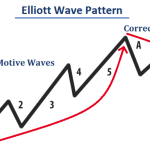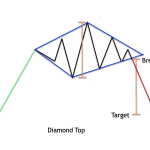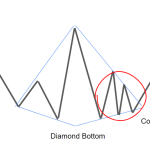
The Russell 2000 Index (RUT) is a key benchmark that tracks the performance of 2,000 small-cap companies in the United States, offering investors insight into the small-cap segment of the stock market. It is part of the broader Russell 3000 Index, which measures the performance of the largest 3,000 U.S. publicly traded companies. The Russell 2000 is considered the primary index for small-cap stocks, providing a more focused view of the U.S. economy’s smaller companies than indices like the S&P 500, which are dominated by large-cap firms.
Composition of the Russell 2000
The Russell 2000 includes companies from a variety of sectors, although it tends to be more heavily weighted in industries such as healthcare, financial services, industrials, and consumer discretionary. Small-cap stocks are generally defined as companies with market capitalizations between $300 million and $2 billion. These companies are often in earlier stages of growth compared to large-cap stocks, offering significant upside potential but with higher risk due to less-established financials and business models.
Importance of the Russell 2000
For investors, the Russell 2000 serves as a valuable tool for measuring the health and performance of small-cap stocks, which are often considered a proxy for the U.S. domestic economy. While large-cap companies in indices like the S&P 500 often have significant international exposure, the companies in the Russell 2000 typically derive a majority of their revenues from within the U.S. As a result, the Russell 2000 is more sensitive to changes in U.S. economic conditions.
Small-cap stocks tend to outperform in periods of economic recovery and expansion, as investors are more willing to take on the higher risk associated with smaller companies. However, during times of economic uncertainty or market downturns, small-cap stocks can be more volatile and experience steeper declines.
Investment Strategies Using the Russell 2000
Investors use the Russell 2000 in several different ways, depending on their investment objectives and risk tolerance:
- Small-Cap Exposure: The Russell 2000 is ideal for investors looking to gain exposure to small-cap companies, which have the potential for higher growth compared to large-cap firms. Small-cap stocks are often favored by those with a long-term investment horizon who are willing to accept more volatility in exchange for higher growth potential.
- Diversification: The Russell 2000 offers broad diversification within the small-cap space. Instead of choosing individual small-cap stocks, which can be risky, investing in an ETF or mutual fund that tracks the Russell 2000 allows investors to spread risk across 2,000 companies from various industries.
- Russell 2000 ETFs: One of the most common ways to invest in the Russell 2000 is through an exchange-traded fund (ETF), such as the iShares Russell 2000 ETF (IWM). This ETF mirrors the performance of the index, providing investors with a convenient way to invest in small-cap stocks without having to select individual companies.
- Growth Potential: Small-cap stocks have historically outperformed large-cap stocks over long periods, making the Russell 2000 attractive to growth-oriented investors. These companies are often in the early stages of expansion, with significant room for future growth.
- Economic Indicator: The Russell 2000 is often viewed as an indicator of U.S. economic health, particularly in relation to domestic businesses. Investors and analysts monitor the index to gauge the strength of the domestic economy, as small-cap companies are more tied to U.S. economic trends than large multinational corporations.
Performance and Volatility
While the Russell 2000 has shown strong performance over the long term, it is also known for its higher volatility compared to large-cap indices like the S&P 500. Small-cap stocks are more sensitive to market fluctuations, interest rate changes, and economic conditions. As a result, the index tends to experience larger swings during periods of market instability or economic recession.
Historically, small-cap stocks have outperformed during bull markets, as investors are drawn to their growth potential. However, they tend to underperform during bear markets or periods of economic contraction due to their higher risk profile.
Russell 2000 vs. Other Indices
Compared to the S&P 500 or Nasdaq 100, which focus on large-cap stocks, the Russell 2000 offers a distinct approach by emphasizing smaller, less-established companies. While large-cap indices are more stable and provide income through dividends, the Russell 2000 offers higher growth potential with greater risk.
Conclusion
The Russell 2000 is an essential index for tracking the performance of small-cap U.S. companies and provides investors with opportunities for high growth through exposure to a wide range of sectors. While it comes with more volatility and risk than large-cap indices, it is an attractive option for investors seeking long-term growth or those looking to diversify their portfolios with small-cap stocks. By investing in the Russell 2000 through ETFs like IWM, investors can access a diverse set of smaller companies with significant potential for expansion, while managing the risk through broad diversification.






